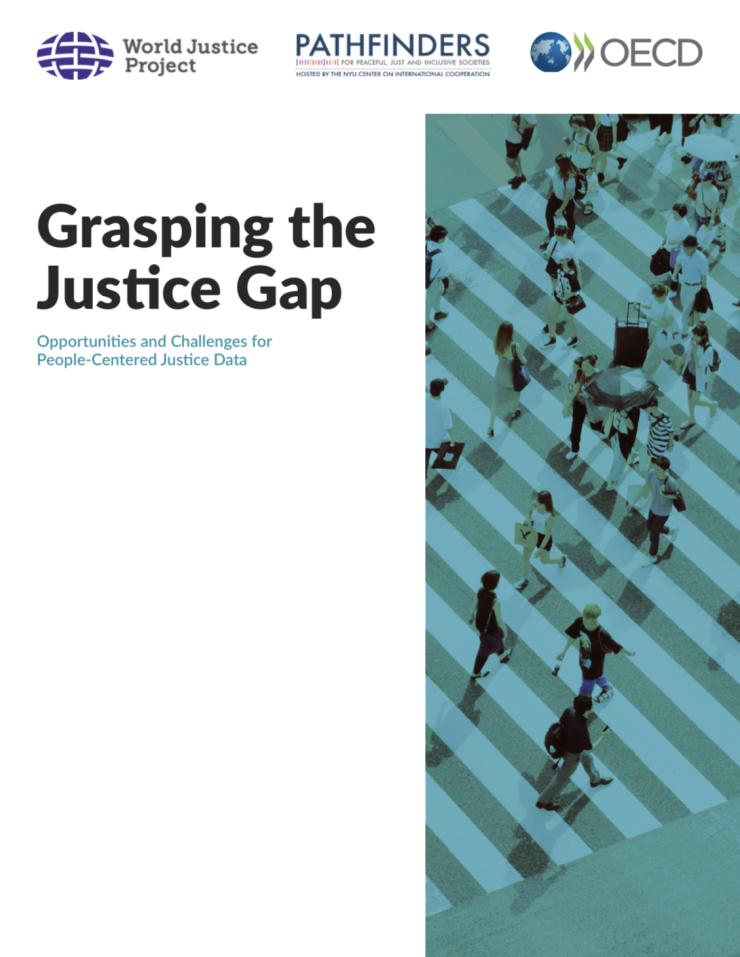


Weak justice data is undermining progress towards justice for all. Without people-centered justice data, policymakers may misdiagnose problems or misallocate scarce resources. Data can reveal justice investment strategies to most effectively and efficiently address and resolve problems.
A shift towards better justice data is underway. The 2019 Justice for All Report of the Taskforce on Justice laid out a roadmap to put people at the center of justice systems and justice at the heart of sustainable development. As more and more justice leaders, policymakers and funders embrace people-centered justice approaches, they are realizing that available justice data often does not give them the information they need. If they want to target justice investment, they need data to understand the most common and impactful justice problems people face. If they want to advance innovations that respond to people’s needs, they need data that reveals how people access (or do not access) information and advice. If they want to convince a finance ministry to invest in justice, they need data which reveals the social, emotional and financial impacts of unresolved justice problems and the costs of structural injustices.
As the COVID-19 pandemic places new pressures on health, policy and fiscal systems, some justice leaders are prioritizing a shift to people-centered justice data to target services and drive transformation. Recent practitioner exchange convened by the Pathfinders for Peaceful, Just and Inclusive Societies, World Justice Project, and the Open Society Justice Initiative has begun to identify common data priorities and innovative strategies that are driving transformation.
These experiences and findings are summarized in our new discussion paper: Grasping the Justice Gap: Opportunities and Challenges for People-Centered Justice Data.
Justice data ecosystems
Justice systems face significant constraints in effectively using data. They can struggle to apply justice data to inform strategies in real time. The justice data that is available is typically primarily data from formal justice institutions. While this data can help strengthen institutional processes and performance, it does not help reveal the majority of people’s justice problems, where they go for help or how justice systems can better respond to needs.
Other sources of justice show promise. Data from cases handled by civil society and community justice institutions can offer a broader perspective, but is rarely used to its full potential. Justice surveys are an important tool to understand who experiences justice problems, where they arise and their impacts and costs. However, these surveys are costly and many countries do not collect or use this data to inform justice policies.
Leaders have begun taking steps to improve the justice data ecosystem in order to advance people-centered access to justice. Much like the health data ecosystem, a justice data ecosystem consists of the network of actors and institutions who produce, analyze, and use justice data. A range of actors make up the justice data ecosystem including courts; ministries of justice; planning agencies; national statistical offices; legal aid institutions; social sector ministries like ministries of health and labor; civil society organizations; academic institutions; and the broader public. The coordination of collection and use of justice data is essential for an effective and transformative justice data ecosystem.
Better data for better outcomes
To accelerate progress towards evidence-based, people-centered justice, leaders across government, civil society, and the donor community must contribute to data production, analysis, and use. This includes strengthening partnerships across justice data ecosystems; investing adequate resources in collecting quality data; and communicating data insights on people’s justice needs and effective justice strategies. These efforts can be further reinforced by international efforts to develop standardized data methodologies and share good practices on the collaborative collection and use of justice data.
Central to realizing this vision, the justice community needs to better define a core set of data priorities for building a people-centered justice data ecosystem. Such an ecosystem must inform strategies to advance equal access to justice for all. Over the course of the last few months, justice leaders have identified core people-centered justice data priorities. Justice leaders need data to advance:
A coalition of justice actors can contribute to strengthening justice data production, analysis, and use. While specific strategies should be based on country data capacities, available data, and priorities, justice leaders across countries should are taking concrete steps to improve data collection and use it to realize access to justice for all.